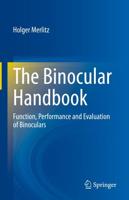Publisher's Synopsis
The aim of the workshop was to bring together specialists in various fields where non-exponential relaxation is observed in order to compare models and experimental results and to examine the general physical principles governing this type of behaviour. Non-exponential relaxation is found in extremely diverse physical systems all of which can be classified as complex. The form of the relaxation is generally parametrized using logarithmic, algebraic or stretched exponential decay forms. The conceptually simplest mechanism for the non-exponential decay is a spectrum of relaxation rates due to non-interacting units each of which relaxes with a different intrinsic time constant. Clear experimental examples can be given where for instance the relaxation of a collection of isolated polymer molecules leads to an overall stretched exponential decay. Non-exponential relaxation is observed in all strongly interacting complex systems (structural glasses, spin glasses, etc ... ) where each elementary unit is in interaction with many other units.









